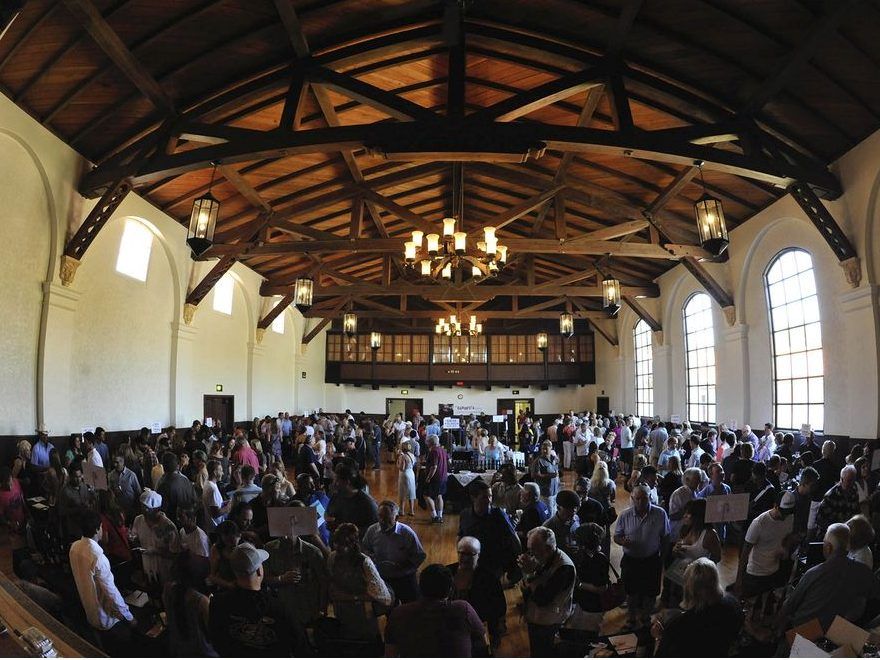Reviews and recommendations are unbiased and products are independently selected. Postmedia may earn an affiliate commission on purchases made through links on this page.
Last: Join a wine cult. It’s easy, it’s fun (it’s expensive)!

Content of the article
Oxford defines the term sect as a small group of people with extreme religious beliefs who are not part of an established religion. Over time, the term has been corrupted to include just about any small group that worships specific products or practices. Goat yoga (goats seem to pop up frequently in cult references), audiophiles, vegans, Phish fans, could all be considered cults or cults, and if you create any of those things and that they attract a small group of devotees, then Congratulations, you are a cult. People don’t always realize they’ve joined a cult; it may surprise you. One minute you’re listening to the band Phish, probably on CJSW (cult radio), and the next you’re buying their albums, vinyl of course, which are also cult. There is a time when cults cease to be recognized as such once the mainstream populace seizes on them. Cultists do not seek new members (unless religion is involved); mass acceptance tends to weaken the brand.
Advertisement 2
Content of the article
In the wine world, the term “cult wine” is usually attributed to a group of rare, small-production wines that were created in California’s Napa Valley. In 1986, former real estate agent Jean Phillips bought a 23-hectare vineyard in Oakville and eventually sold all but a half-hectare piece of land that she kept for herself. There were 80 Cabernet Sauvignon vines planted on his plot at the time, and some were drawn to include Merlot and Cabernet Franc, the holy trinity of Bordeaux fame. She hired Dalle Valle winemaker Heidi Barrett to make a wine from the small plot, and in 1995 the inaugural 1992 vintage was launched locally, selling at the Oakville grocery store for $75 a bottle. Highly influential (at the time) wine critic Robert Parker was won over by these small production wines and awarded Screaming Eagle 99 points; Needless to say it sold out instantly. Screaming Eagle is now owned by billionaire Stan Kroenke and sells for around C$3,000 a bottle, if you can find it.
Advertisement 3
Content of the article
While few cult wines have reached the lofty heights of Screaming Eagle, the notion of small-production, high-quality wines has become a thing, spreading far beyond Napa Valley. In Bordeaux they were known as garagistes, a term which implied that wines were made in a garage, although this was rarely the case. In the 1970s, a now famous Pomerol wine, Château Le Pin, was produced in the basement of a farmhouse, and although the term garagistes did not exist in the winery, the two owners may well have started a trend. In 1989, two winegrowers – Jean-Luc Thunevin and Murielle Andraud – embarked on making a wine literally in their garage. The wine, Château Valandraud, would overtake the illustrious Château Petrus (one of the most expensive wines in the world) a few years later. Every November, the Californian town of Paso Robles hosts the Garagistes Wine Festival. To participate, wineries must produce fewer than 1,500 cases per year, and profits are used to provide scholarships for future generations of winemakers. It now draws large crowds every year and has been called “one of the top nine incredible epicurean vacations in the world” by ABC news. It would seem that the phrase “small business is big business” applies to the cult wine movement.
Advertisement 4
Content of the article
Recently, Napa Valley winemaker Douglas Danielak was in town to host a winemaker’s dinner at Teatro Restaurant. When I first met him many years ago, he was the winemaker at Jade Mountain, a Napa winery specializing in Rhone varietals. Owner Jim Paras sold Jade Mountain to the Chalone Group (which in turn was sold to Treasury Wine Estates for $552 million) but kept some of his vineyards and continued to produce wines under his name until that a fire destroys the cellar. Douglas began his wine training in Burgundy and his classmates included Frédérick Mugnier and Dominique Lafon, quite good company with the rarified air of Burgundy. Fast forward to 2006 when he signed on as director of winemaking for Knights Bridge, a no-cost winery on the edge of the Knights Valley AVA, across from the illustrious Peter Michael winery. That part of the equation is history, but he also serves as a consultant, both in California and Burgundy, and produces a line of his own wines; Juicy Rebound (focused on Napa Valley Cabernets and Pinot Noir) and Pont Neuf, a small range of Burgundian-style Chardonnays and Pinot Noirs. The latter is a devout passion; the vineyards are located in the cooler climes of Sonoma’s Russian River Valley and are propagated from clones from some of Burgundy’s most prestigious names, such as Le Montrachet, for example. The project is about as close to the Burgundian model as you can find in the New World and the quantities produced are minute even by Burgundian standards. Quantities on some of these bottlings were as low as 50 cases, and in that regard, they could be called cult wines, although he didn’t seem comfortable with that moniker.
Advertisement 5
Content of the article
I had the opportunity to try these wines during his visit (they are brought to Calgary by Market Wines), and they are simply outstanding, as fine an example of Burgundy-meets-the-new-world as you are likely to find . Pont Neuf is a labor of love, driven by history and the Burgundian model that personifies the notion of terroir. In other words, wines that say a lot about where they come from and why people dedicate their lives to the art of winemaking. If these are cult wines, then sign me up. I was assured that no goats or pentagrams would come into play, just great wines made with the utmost care and passion. I think I’ll have a drink while listening to my David Bowie records, on vinyl, of course. Cheers!
Geoff Last is a longtime Calgary wine merchant, writer, instructor and broadcaster. He can be heard on CJSW’s Road Pops program on Fridays at 4 p.m. He received a fellowship at the Napa Valley Professional Wine Writers Symposium for articles in this column. Media inquiries can be directed to [email protected]





